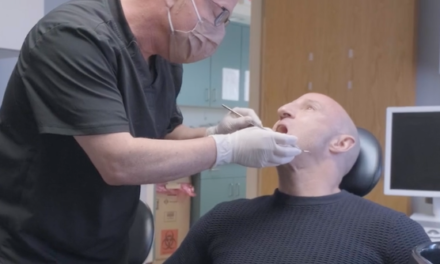For literally centuries, doctors had recommended eliminating starches and sugars for the purpose of losing weight. Read “On Corpulence” which you can still buy on Amazon for an account from the the1800s which was published at the time. Still in print after all these years. This recommendation remained consistent until the early 1960s.
What changed?
A small group of rather fanatical anti-fat doctors began discussing their ideas in a US Senate subcommittee on health which focused on concerns over the increasing obesity problem in America, in the late 1960s. Within a few short years, their dubious claim that eating less fat would make you less fat became medical doctrine, with little more than a bit of fervent belief. Some of these folks actually in print claimed Dr. Atkins [of the low carb Atkin’s diet], who had substantial data to prove his success, was actually committing “medical malpractice.”
This group of doctors, promoted by public policy, soon took the power positions of major medical journals and easily controlled what was published with the confidence they could eventually “prove” the low-fat diet hypothesis that they so strongly believed. They appear to have been utterly ignorant of the simple metabolic fact that excess sugar leads to insulin release which then converts sugar into fat for long-term storage.
Entire researchers’ lives and academic careers were ruined when they attempted to publish scientific data that didn’t support the low-fat dogma. The data existed by the mid-1980s that the low-fat diet wasn’t all its originators hoped it would be. But rather than publish the conflicting data and discuss the matter rationally, they literally buried information with a political internal network that had a stranglehold on scientific journals.
So practicing physicians had no idea that the low-fat diet was doomed, and continued to tell patients that was the only way to weight loss.
By around the year 2000, Harvard scientists made a rather astute observation: America was getting more fat not less fat from the low-fat diet foods that had been promoted for the last 30 years. They also noted that low-fat foods are packed with sugar, so that they have some taste. They brought the low carb/ketogenic diet question back into the spotlight and petitioned the government to change to food pyramid into something with less simple carbohydrates.
But the low-fat diet propaganda continued. Then finally, the study that the low-fat diet proponents were waiting for arrived: the Framingham Women’s study. Decades of following the health patterns of thousands of women. And guess what. . . . .
Women who followed the low-fat diet weighed more and had larger abdominal girth than women who didn’t diet at all!
This study probably was the nail in the low-fat diet hypothesis coffin since it actually proved it was wrong, but doctors jumped onto news channels saying such absolute nonsense as “we still know the low-fat diet is the best” basically “because we know it.” Knowledge is more than a dogmatic belief. Knowledge requires that belief be true and justified, according to the standards of Western Philosophy. And when the data proves low-fat dieting is worthless and perhaps harmful, then continuing to support it out loud requires the doctor to say that they believe it perhaps, but the data no longer supports the belief.
How about just giving up the wrong belief? Is it really that hard?
Had the journals which doctors rely on actually done their job rather than being under the control of delusional hacks, who just wanted their wrong-headed idea about low-fat diets to be accepted, actually published the emerging data, millions of people could have gotten much more accurate advice from their doctors and dieticians for decades. Lives could have been saved, misery reduced, and actual knowledge could have been shared both with colleagues and patients.
Technically, “science” didn’t fail. But the political control from within medicine destroyed the progress of scientific knowledge for nearly 40 years. How can science be expected to work, when doctors or others are more interested in their own agendas than in actual data?
I know people who have lost quite a lot of weight using many different diet strategies. They ultimately succeeded by making their diet a lifelong commitment. But very few of them had made the low-fat diet work. It is possible, but it creates a metabolic challenge to overcome, and it is already difficult enough to reach the success you deserve.
Check out the amazing documentary “Fathead” for a truly academic discussion of this “scientific” folly.
Click Here to View or Buy a Print Version of the Magaizne!





